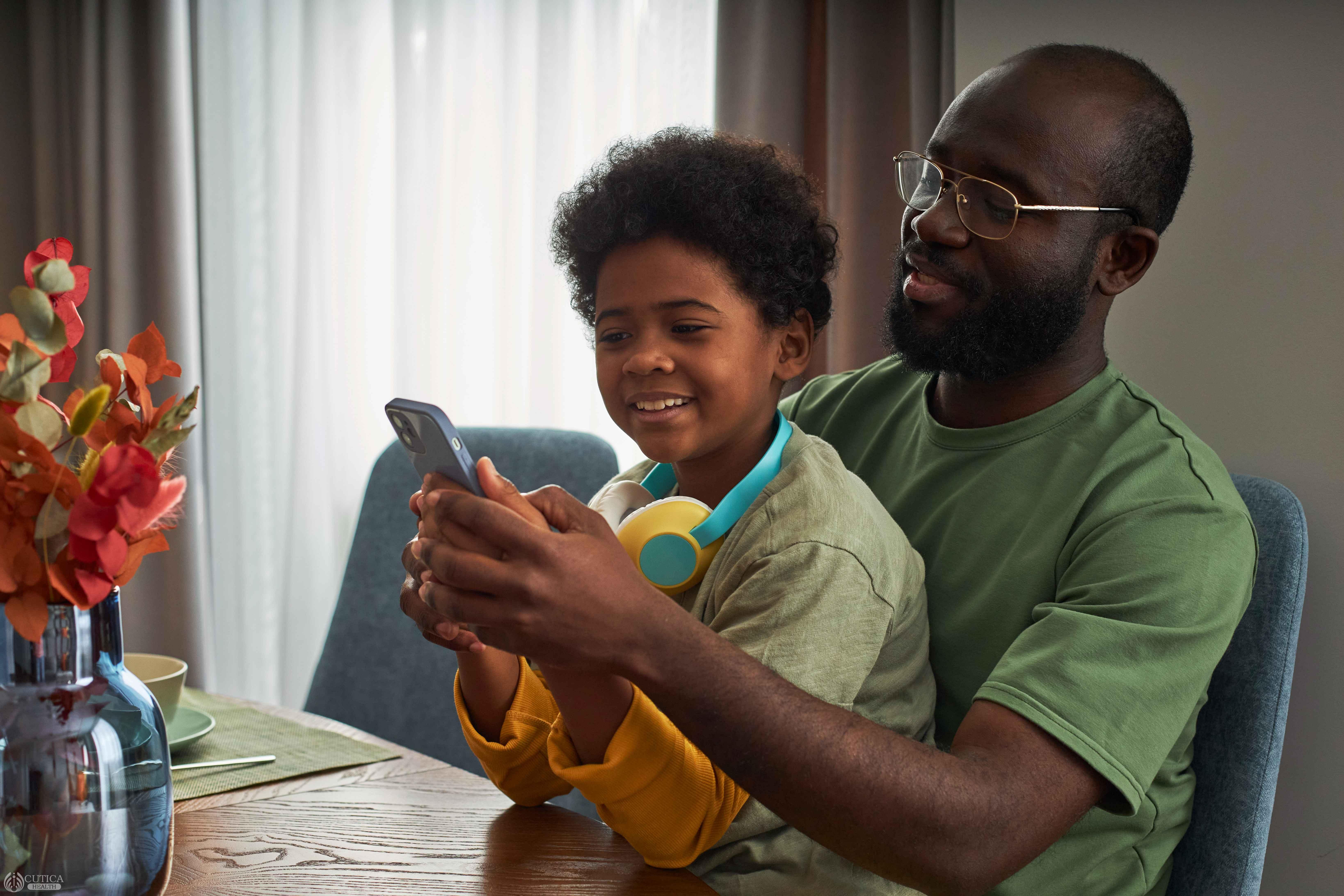Samuel and Jazael had a problem with their newborn child; she was always crying whenever they left the house. A lot of people have encouraged them to use their phones as a distraction for their child whenever she starts crying. But Samuel’s father cited a concern about screen time for a 1-year-old. But how could a screen affect his child’s development, Samuel wondered.
Introduction
In the digital age, children are surrounded by screens, from smartphones and tablets to TVs and computers. While technology offers numerous educational benefits, the question of how much screen time is too much for children has become a significant concern for parents, educators, and health professionals alike. Striking a balance is essential to ensure healthy development and well-being.


How much screen time is too much screen time?
The American Academy of Pediatrics (AAP) provides guidelines to help parents navigate the complex landscape of screen time. According to these guidelines, children under 18 months should avoid the use of screen media, except for video chatting. For children aged 18 to 24 months, limited, high-quality programming is recommended, with parental supervision.
For children aged 2 to 5 years, screen time should be capped at one hour per day, focusing on high-quality educational content. Beyond the age of 6, parents are encouraged to set consistent limits on the amount of screen time and prioritize sleep, physical activity, and other healthy behaviors.
Why is screen time important for children?
Excessive screen time can have various negative effects on children's physical and mental well-being. Prolonged screen use is associated with sedentary behavior, which contributes to an increased risk of obesity. Additionally, excessive screen time can interfere with sleep patterns, affecting the overall health and cognitive functioning of children.
Extended screen time has also been linked to potential negative impacts on mental health. Excessive exposure to screens, particularly on social media, may contribute to issues like cyberbullying, poor body image and decreased self-esteem. Parents must monitor and guide their children's online activities to promote a healthy online environment.
How do I control screen time in my children?
- Set Clear Limits: Establish clear and consistent rules regarding screen time. Communicate these boundaries with your child to ensure mutual understanding.
- Encourage Outdoor Activities: Prioritize physical activities and outdoor playtime to promote a healthy lifestyle and balance sedentary screen time with active pursuits.
- Promote Educational Content: When screen time is allowed, opt for high-quality, educational content. Numerous apps and programs are designed to stimulate learning and creativity.
- Create Tech-Free Zones: Designate certain areas of the home, such as bedrooms and dining areas, as tech-free zones to encourage face-to-face interactions and quality family time.Monitor Content:
- Regularly review and monitor the content your child is consuming online. Use parental controls and age-appropriate filters to ensure a safe online environment.

Conclusion
In the digital era, managing screen time for children is a complex yet crucial aspect of parenting. Striking the right balance, following guidelines set by experts, and being actively involved in a child's digital life can contribute to healthy development and overall well-being. By promoting a mindful approach to screen time, parents can empower their children to navigate the digital world responsibly and foster a harmonious blend of technology and healthy living.


